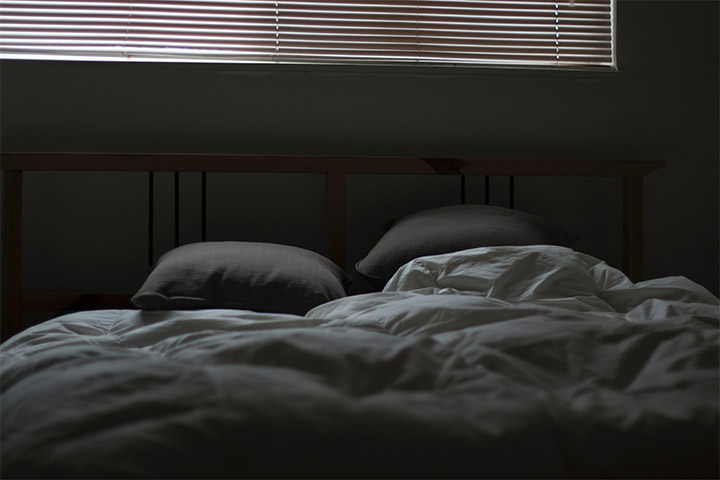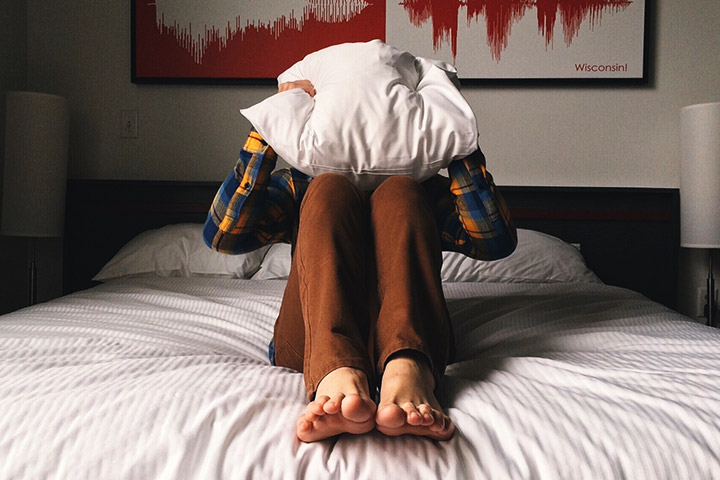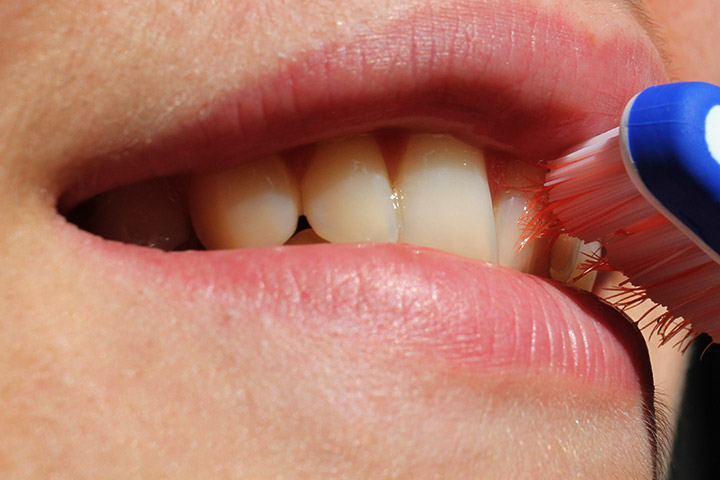While snoring in adults is common, snoring in children is much less common. Indeed, snoring in children is often linked to other pathologies such as sleep apnoea. It is not without consequences and can lead to a large number of complications for the child. What causes snoring in children? How to identify it? How to diagnose and treat snoring in children? We tell you everything in this article.
Child snoring: is it normal?
Snoring in children is quite rare: it affects only 10% of children aged 3-6 years. In adults, snoring is the result of poor airflow in the airways. Air gets blocked in the pharynx, uvula and soft palate. This causes a hoarse sound when breathing at night. This uncommon condition in children is often caused by a malformation, obstructive sleep-disordered breathing (OSD), or enlarged tonsils and vegetations. Snoring can also be a symptom of sleep apnoea.
It is a common misconception that a snoring child is a child who sleeps well. This is not the case: in general, the child is tired in the morning. They may have difficulty concentrating at school, learning difficulties and tend to wet the bed. Children who snore regularly are also considered to be more prone to hyperactivity than children who do not snore. They may also suffer from emotional and relationship problems. As you can see, it is important to identify snoring in children in order to find the right treatment. We explain how to identify snoring in children and how to treat it.
How to identify snoring in children?
How do you identify the causes of snoring in children? The first thing to do is to determine the context in which it occurs. Snoring during a cold is considered normal: the child simply suffers from nasal congestion, which leads to airway obstruction during the night. If snoring does not occur during a cold, it is important to consult a sleep specialist or paediatrician after observing and listening to the child sleep. Even if snoring is common in your family, frequent snoring in children is not normal and should worry you. It can be particularly difficult to identify. If the following symptoms are present, this may be a sign that the child is snoring:
- frequent enuresis (bedwetting) ;
- difficulty breathing during sleep, pauses in breathing;
- a frequent urge to drink during the night;
- recurrent nightmares;
- hyperactivity;
- symptoms of poor sleep quality (night sweats, irritability, severe fatigue during the day, etc.).
Snoring can ultimately have many consequences on child’s health. It can lead to sleep apnoea, poor oxygenation, cardiovascular, growth and behavioural problems.
The diagnosis of snoring in children is carried out in the same way as the diagnosis of snoring in adults. In the first instance, it is necessary to take the child to the paediatrician or general practitioner. This is usually followed by an ENT examination, and sleep laboratory tests if dentofacial abnormalities and enlarged tonsils are ruled out.
How to treat snoring in children?
Now you know one thing: there are many causes of snoring in children. In the majority of cases, 85%, snoring is caused by enlarged tonsils. This pathology often presents itself around 4-5 years of age and requires a tonsillectomy to be performed without delay. The child is operated under general anaesthesia and the risks are very low. Afterwards, the child no longer has daytime problems and can sleep well again. In other cases, adenoids or a different type of surgery can be considered (if the snoring persists later in childhood, around 9 or 10 years old).
When snoring is associated with sleep apnoea, the ENT specialist often proposes resection of the tonsils and adenoids. A corticosteroid-based drug treatment is sometimes administered to reduce the inflammation of the upper airways. Finally, if the concern is with the teeth or jaw, specialists may propose orthodontics or even palate enlargement after a dento-facial assessment. In all cases, there is no need to worry too much: consulting a specialist is essential, but it is not said that surgery is envisaged immediately. In most cases, it is possible to wait until adolescence to carry out an operation if the snoring persists for anatomical reasons (deviated nasal septum, too long soft palate…).




